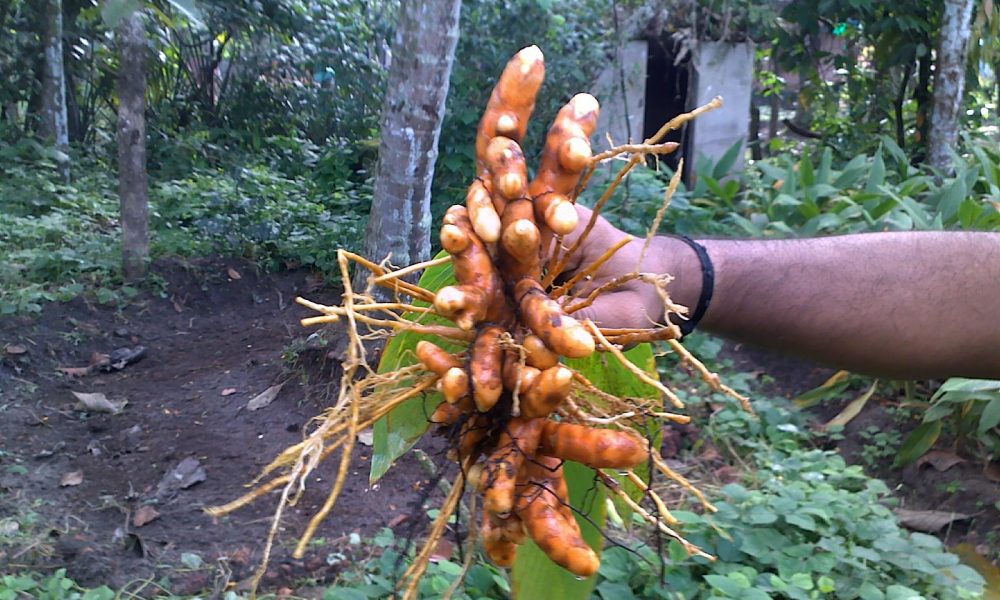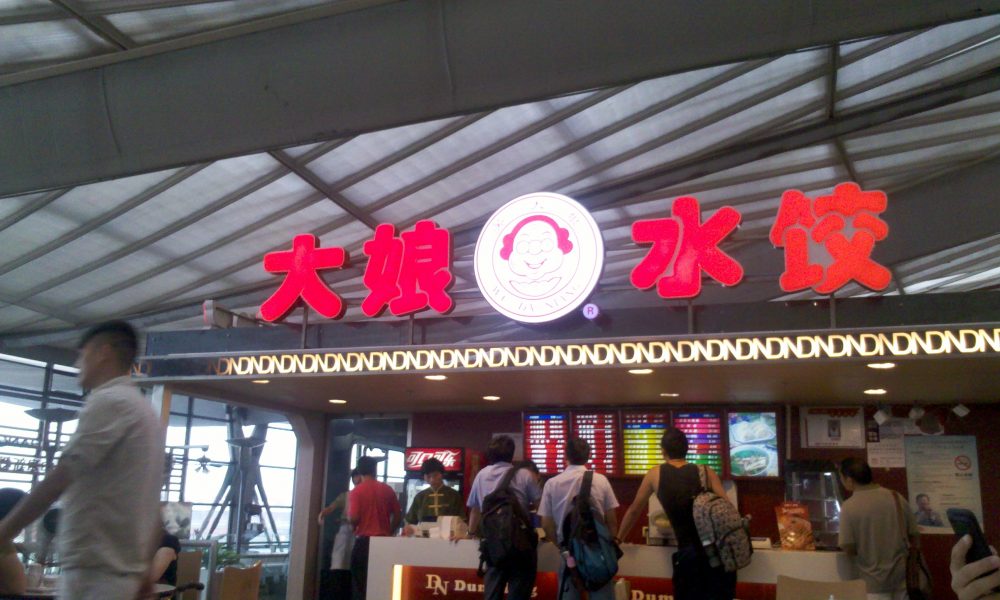Category: Mergers & Acquisitions
Vietnamese buyout firm PHI Group to acquire majority stake in agribusiness HMC
PHI Group, an American private equity investment firm focusing on acquisitions and investments has bought a majority stake in northern Vietnam-based agriculture company Hoang Minh Chau Hung Yen LLC (HMC) in a cash and stock transaction, according to a press statement.
As per details regarding the Memorandum of Agreement, PHI Group will be acquiring a minimum of 51 percent interest in Hoang Minh Chau Hung Yen LLC, a Vietnamese firm located in Chi Tan Village, Khoai Chau District.
Well known for its turmeric fields, Chi Tan, however, has only been involved in the processing business in the past three years and is yet to build a strong branding. Founded in 2011, HMC is among a dozen family businesses in the area that are involved in growing and buying raw materials from farmers for processing.
HMC specialises in cultivating and processing turmeric (curcuma longa) and currently manages a 600-hectare raw material field in Hung Yen province. Aside from growing turmeric, the company also buys harvested crops from other local farmers for its turmeric processing plant.
At present, the Vietnamese turmeric manufacturer produces 5 to 7 tonnes of turmeric powder every year. Additionally, it aims to extend its capacity to 15 tonnes in the following years.
It produces turmeric powder for food, healthcare and beauty supply and also contracts with the Vietnamese Institute of Industrial Chemistry to process curcuminoids from turmeric for various usages.
This acquisition also comes as part of PHI Group’s plan to apply the proprietary enhanced bioavailable nutrients and natural symbiotic immune system to grow organic turmeric in Hung Yen province, Vietnam and at the same time utilise HMC’s expertise and experience to grow premium organic turmeric in the United States for Abundant Farms, a PHI Group’s agricultural subsidiary.
“Since traditional turmeric rhizomes in Chi Tan Village, Hung Yen Province are among the very best in the world in terms of size and curcumin contents, we believe PHI Group’s Abundant Farms can greatly benefit from using these seed roots and HMC’s expertise and experience in our turmeric farming program,” commented Henry Fahman, the chairman and CEO of PHI Group.
PHI Group focuses mainly on acquisitions and buyouts in selected industries, investing in special situations and provides corporate and project finance services, including M&A advisory and consulting services for other companies. Most of its portfolio are agricultural companies and projects.
“We look forward to working with PHI Group to utilize its enhanced bioavailable nutrients and natural symbiotic immune system to grow premium organic turmeric in Hung Yen Province to provide better quality and yields for our turmeric crops,” said Dong Quang Hoang, the Director of HMC.
By Vivian Foo, Unicorn Media
Indonesian Indo Komoditi to acquire Sinar Cahaya Cemerlang, Zonergy’s local unit for US$33 million
Indonesia’s rubber producer Indo Komoditi Korpora has made an announcement today about its plans to acquire Chinese firm Zonergy’s local CPO unit, Sinar Cahaya Cemerlang (SCC), for a maximum price of US$33 million.
According to Indo Komoditi Management, it intends to purchase between 60 to 100 percent of SCC’s paid up capital using a total of US$15 million received in loans from major shareholders Alam Tulus Abadi (ATA) and Sinoasia to fund the acquisition.
“Sinosia will give out a maximum amount of US$10 million, while ATA will provide US$5 million,” said the company officials in a statement. The acquisition will be completed after a due diligence has been conducted.
Based in Beijing, Zonergy is involved in the development of solar and biomass energy as well as the cultivation of oil palm, owning more than 30,000 hectares of oil palm. The company is also an affiliate of ZTE Group, one of the largest Chinese telecommunications firms.
Established in 1982 under the name of Indo Aya Leasing, Indo Komoditi is a company that is involved in a wide range of activities from leasing, trading, agency, representatives, contractor, services, transportation, printing, agriculture, and real estate to industry.
The company went public in 1989 but was delisted by the authorities in 2013. It was then re-listed on the Indonesian Stock Exchange (IDX) in September 2016,
The Indonesian firm also said that it believes a stable prospect for the future of the palm oil industry, as Crude Palm Oil (CPO), is currently the most used oil in the world, being one of Indonesia’s main drivers in exports. Hence, with the acquisition of SCC, this will become Indo Komoditi’s first venture into the CPO business.
In the first nine months last year, Indo Komoditi reported a total sale of Rp 291.3 billion, a slight drop from the same period the year before which was Rp 294 billion. However, profits jumped to Rp 3 billion from Rp 1.3 billion in the third quarter of 2015.
Indo Komoditi will obtain its shareholders’ approval for the transaction on March 2, 2017.
By Vivian Foo, Unicorn Media
Chinese accelerator ZDream Ventures acquires startups database provider Xeler8
Chinese accelerator and venture fund ZDream Ventures has recently acquired the 100 percent stake in Xeler8 Inc., a Gurugam-based intelligence platform providing startups database to venture capitals and private equity firms.
The financial details of the transaction were undisclosed. But for ZDream, this is its third acquisition in India, after subscription based e-grocery startup Milkbasket and digital media platform iamwire.
Following this acquisition, the 12-member team of Xeler8 will also be absorbed into Beijing and Gurgaon-based ZDream Ventures.
Founded in 2015 by Rishabh Lawania and Keshu Dubey, Xeler8 offers a database of Indian startups to venture capital and private equity firms, providing them with curated information on their business models, funding, founder details, and more.
The startup tracker covers 47 different industries, helping investors to access their deal procedure while playing the role as a lead generation platform for corporates as well as a market research tool.
“We have plans on launching a tech media platform that will be backed by the Xeler8 database and the data will be open to all, in order to fuel up Indian start-up ecosystem,” said Jason Wang, the Founder and CEO of ZDream Ventures.
Another co-founder of Xeler8, Bishabh Lawania also commented on the acquisition, “This is an exciting time for us. We look forward to working with ZDream Ventures and offering unique and insightful data to the stakeholders of the Indian startup ecosystem.”
ZDream Ventures is a Y Combinator-like fund as well as an accelerator focusing on technology, media, and telecommunications industry.
By Vivian Foo, Unicorn Media
Chinese hotel management GreenTree Group to buy CVC-backed Da Niang Dumplings
Chinese fast food restaurant chain Da Niang Dumplings Holdings Ltd., since its acquisiton by CVC Capital Partners in 2013, is now being resold again to Chinese hotel group GreenTree Inns Hotel Management Group, Inc., according to an official statement posted on the website of Ministry of Commerce’s anti-monopoly bureau.
As per details of the acquisition, the online new announcement disclosed that a wholly owned subsidiary unit of the Shanghai-based budget hotel group is to acquire the 100 per cent stakes of Da Niang Dumplings, which operates over 400 restaurants across China.
Besides, it is also noted that GreenTree is acquiring the shares directly from Da Niang Dumplings, instead of CVC Capital, which goes to hint that CVC may have sold its control stakes in Da Niang Dumplings prior to this deal.
Da Niang Dumplings, following CVC’s acquisition of the Changzhou, Jiangsu province-based chain, has in recent years suffered from intense competition, frequent conflicts between its founder and controlling shareholders which resulted in a year-after-year declining performance.
The company’s founder Wu Guoqiang, who retained a 10% stake in Da Niang, said revenues declined by 10% in each of 2014 and 2015 is largely due to mismanagement, specifically because of the cost cutting efforts initiated by CVC. The fast food chain also has quite a frequent change of directors, having welcomed three new CEOs in a span of three years.
Founded in 2004, GreenTree manages and franchises over 2,500 properties in and outside of China. The hotel group, with no prior experience in the food and restaurant businesses, was reportedly one of the bidders for McDonald’s China and Hong Kong unit, which was acquired by CITIC Group and the Carlyle Group earlier this month.
Having successfully acquired Da Niang Dumplings, GreenTree could potentially realize synergies with the fast food chain as both businesses are targeting the lower end consumer market. GreenTree Inn’s most high-end hotel for the Green East is priced at 300 to 600 yuan range while Da Niang Dumplings prices are set between 25 to 34 yuan.
By Vivian Foo, Unicorn Media
China Exim Bank fund buys Hungarian telecom firm Invitel for US$214 million
An investment fund established by the Export-Import Bank of China and other institutional investors has agreed to purchase Hungarian telecommunications company Invitel Group at an enterprise value 4.5 times of its 2015 EBITDA, that is €202 million (US$214 million).
The China-CEE fund represents a US$435 million private equity fund, established by China Exim Bank in partnership with central and eastern European institutional investors, with current investments in countries including Poland, the Czech Republic and Bulgaria.
The transaction is subject to customary closing conditions, including local competition authority clearance, and is expected to be completed in the first quarter of 2017.
CEE Equity Partners, the investment advisor to the China CEE Investment Cooperation Fund, is to buy the company from Mid Europa Partners, a buyout investor in central and south eastern Europe with over €4.3 billion (US$4.6 billion) in funds raised since inception.
“Under Mid Europa’s leadership, we have strengthened Invitel’s position in the Hungarian market and we are grateful for their support. We look forward to further developing the business under the ownership of CEE Equity,” said David Blunck, the CEO of Invitel.
TeleGeography’s GlobalComms Database (GCD) notes that Mid Europa’s decision to sell Invitel lies in line with its widespread telecoms sector divestment strategy whereby Mid Europa, focused on the central and south-east part of Europe, sold its only other remaining telco subsidiaries Bite Latvia/Lithuania in Q1 2016.
At present, Invitel is the second-largest incumbent fixed-line telecommunications and fourth-largest fixed broadband Internet operator by subscribers, having delivered business and residential services over a range of access platforms including copper PSTN, cable, fibre, and fixed-wireless.
Invitel is also the PSTN provider in 14 of Hungary’s 54 historical fixed line concession areas, covering more than one million homes in Hungary, including both residential and corporate customers. While its 9,000km fibre-optic transmission backbone network gives it nationwide reach, connecting all the country’s major urban centers, with eleven border crossing point.
Invitel has been controlled by Mid Europa since 2009 and is currently 99.99% owned by Magyar Telecom BV, which in itself is 51 percent owned by Mid Europa’s 100 percent-held unit Hungarian Telecom BV and 49 percent by Cayman Islands-incorporated, UK-registered Matel Holdings Ltd which is owned by bondholders.
Established in 1994, the Export–Import Bank of China, also known as China Exim Bank, is one of three institutional banks in China chartered to implement the state policies in industry foreign trade, as well as to provide financial support to promote the export of Chinese products and services.
China Exim Bank has long been an investor in developing nations in Africa and Asia, but in recent years, the Chinese bank has been expanding its investments in Eastern Europe. Solely owned by the Chinese government and under the direct leadership of the State Council, the bank’s international credit ratings are the same as China’s sovereign ratings.
By Vivian Foo, Unicorn Media





